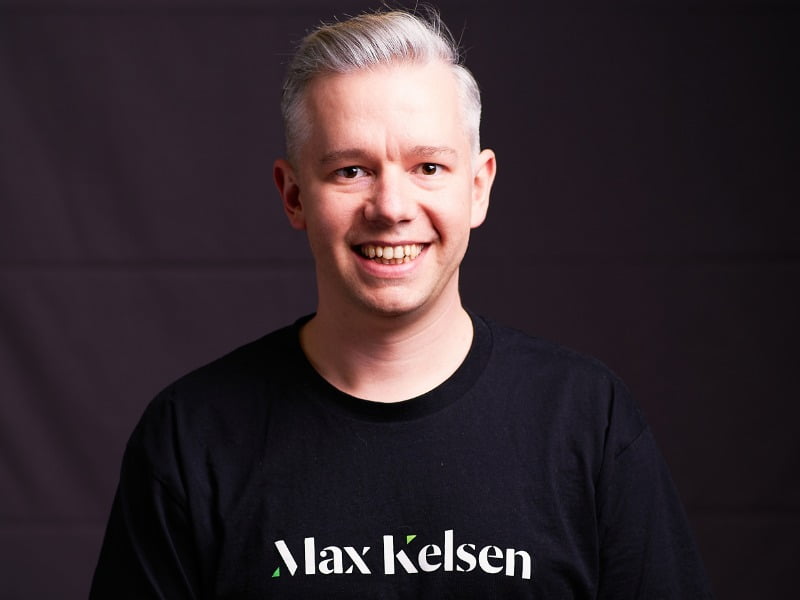There is something perplexing about the way our federal government talks about industry development policy, according to Brisbane-based AI scale-up Max Kelsen chief executive Nick Therkelson-Terry. It never talks about software.
The greatest wealth-creating industry the world has ever known, and our federal political leaders don’t spruik its value as a job-creator, export-earner, or productivity-driver. Yes, this is indeed perplexing.
Max Kelsen was established in 2015 around the time of the National Innovation and Science Agenda – the Ideas Boom – when startups and innovations were recognised and riding a high-profile wave of federal love.
And while the residual benefits of the Malcolm Turnbull-inspired NISA continue to have a positive impact, this government has gone quiet on the software sector. Perplexing is a good word for it.
In this episode of InnovationAus.com’s Commercial Disco, Mr Therkelsen-Terry talks about the boundless opportunity of artificial intelligence as a horizontal, general technology, and Max Kelsen’s largely bootstrapped fast growth.
And he talks about the frustration of running a high-growth company in a high-value market that has limitless export potential in a country where that opportunity is not recognised, let alone seized.
“I would love for someone in government – in the federal government and preferably the Prime Minister – to get up and say: ‘Software is an important industry for this country’,” Mr Therkelsen-Terry said.
“We hear about advanced manufacturing, we hear about tourism and about everything else, but the world – and I had to break this to everyone – the world is software now.
“Everything is software now. The biggest companies in the world are software companies – and yet our policy-makers seem completely incapable of saying the word ‘software’,” he said. “That to me is totally perplexing.”
Max Kelsen has grown from a standing start six years ago to a company with 50 employees and more than 50 per cent of its revenue now coming from outside Australia. It has done this without taking on VC partners (although it did a tiny family-and-friends round), self-funding incredible growth.

The company has built an AI platform product and its continued build through AI consulting services and custom development of the platform. Its corporate customers include Woodside, the big banks, and Dominos, but its biggest market is among top-tier health care and life sciences – particularly in diagnostics.
Its product provides a weightless export built entirely in Australia, Mr Therkelsen-Terry says, another reason the lack of discussion about software, and the lack of enthusiasm in the language used to describe tech builders is frustrating.
“The language that’s used around the technology sector doesn’t reflect the opportunity that the sector will provide for decades to come,” he said. “I just want to see our sector get the recognition and the impetus from policy-makers.”
Australia will continue to dig things out of the ground, and it will continue to manufacture things, he says.
“But we will also build software and ship it to the world and we will create a [software] sector here in Australia in what is the most transformational industry that we have seen in 100 years.”
Mr Therkelsen-Terry also discusses the Research and Development Tax Incentive and the way it is applied to software. And he talks about a nation in lock-down due to COVID, and the specific challenges and opportunities this creates for accessing global talent.
“The R&D Tax Incentive is an excellent policy and should certainly be retained. But the main thing is that we need clarity,” he said.
“There seems to be a view that software isn’t R&D, that R&D has to be done in a lab or done with physical things and can’t possibly be done with software.
“And this has caused businesses like ours and across the sector a lot of grief.”
Do you know more? Contact James Riley via Email.


Well done Nick TT. You are absolutely correct. It would appear the government sees the software industry as a service sector and maybe perceives locally developed software is not significant. The government is such a large user of internationally developed software perhaps all they believe is that we, as a nation, are early adopters not inventors of world class software. What to do? What you are doing is appropriate so keep doing more of this. I also think the Australian ICT industry and its associations, diverse as they are, need to come together and develop, then argue the case, as to why the local industry is so important to the long term prosperity of our nation. It’s certainly challenging.